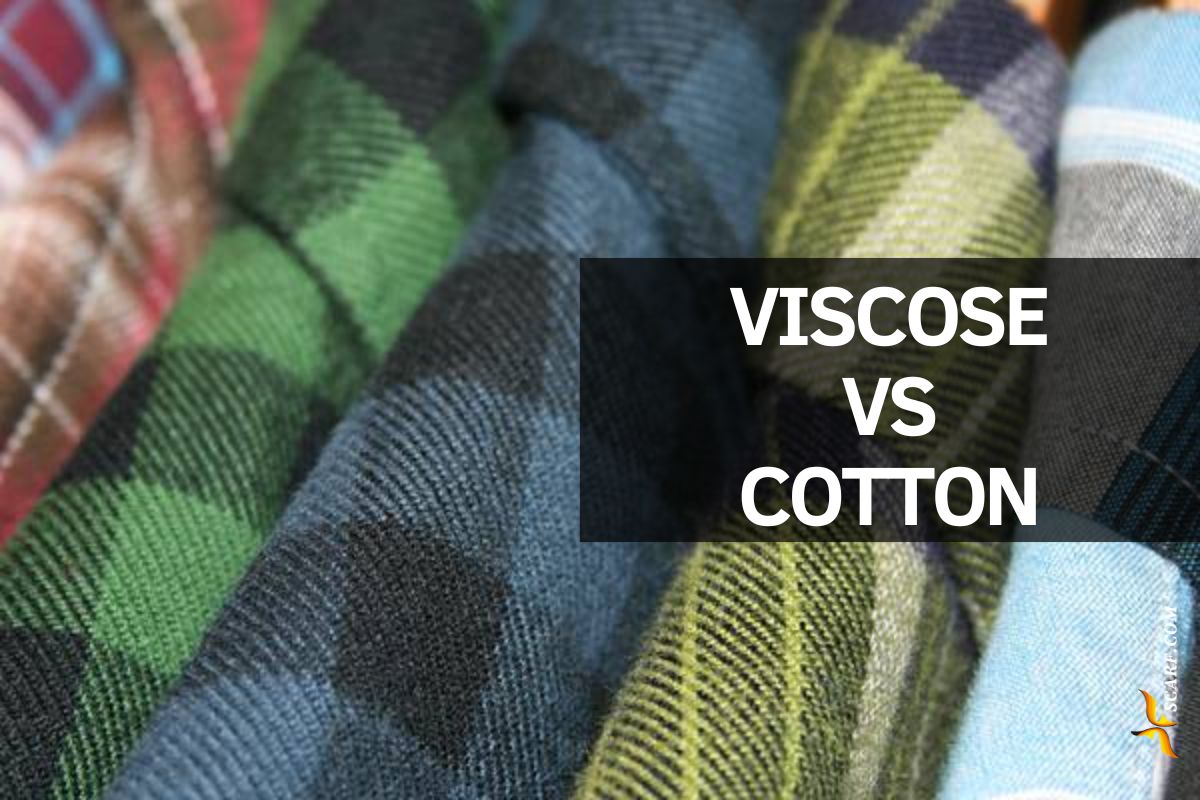Selecting clothing or bedding often brings you to a choice:viscose vs cotton. These fabrics differ in texture, cost, and care requirements. Knowing how viscose vs cotton compare helps you decide what aligns with your comfort, lifestyle, and values. Let’s explore what sets them apart.
Short answer
Cotton offers everyday reliability, while viscose brings elegant drape and softness. Your perfect choice depends on the occasion, care commitment, and personal preference.
What are Viscose and Cotton?
Cotton is a natural fiber, cultivated from the cotton plant. Its long history in textiles stems from softness, breathability, and absorbency.
Viscose, also known as rayon, is a semi-synthetic fiber. It originates from wood pulp but undergoes chemical processing to achieve a soft, flowing quality. It sits between natural and synthetic materials.
Viscose Vs Cotton: Comfort and Feel
Softness and Texture
- Viscose delivers a silky, luxurious handfeel. It drapes elegantly, lending garments a fluid, graceful appearance.
- Cotton provides a familiar, gentle softness. Quality variations exist—premium cotton feels exceptionally smooth, while standard versions offer reliable everyday comfort.
Breathability and Absorption
- Cotton is highly breathable and absorbent. It draws moisture from the skin, making it a trusted choice in heat.
- Viscose also breathes well and absorbs moisture. It can feel cool against the skin, suitable for warm climates or seasons.
Remember: Your personal preference matters. Touch the fabric—notice how it responds to you.
Viscose Vs Cotton: Care and Maintenance
Washing and Drying
- Cotton handles machine washing with ease. It tolerates heat but may shrink under high temperatures. Ironing is often needed.
- Viscose asks for gentler treatment. Hand wash or use cold delicate cycles. Air dry flat to avoid stretching; iron at low heat while slightly damp.
Long-Term Durability
- Cotton stands the test of time. It resists wear, maintaining integrity through repeated use.
- Viscose is more delicate. It may pill or weaken with frequent washing, requiring mindful upkeep.
A little care extends the life of your clothes. Always check the label before cleaning.
Viscose Vs Cotton: Cost and Value
Price Comparison
- Cotton often carries a higher price point, reflecting its natural origins and production process.
- Viscose provides a luxurious aesthetic at a lower cost, making elegance more accessible.
Evaluating Worth
- Cotton brings durability and everyday reliability. It’s a long-term companion.
- Viscose offers beauty and drape without high expense. It suits occasions where appearance matters most.
Choose what fits your budget and intentions. Both have unique value.
Environmental Impact
Cotton is biodegradable and renewable. Conventional cotton farming, however, can involve heavy water and pesticide use. Organic cotton reduces this footprint.
Viscose also breaks down naturally. Sourcing and manufacturing practices vary—look for certifications like FSC or ECOCERT that indicate responsible production.
Your choices carry meaning. Supporting ethical brands encourages greener industry standards.
Which Fabric Should You Choose?
Pick cotton when you need:
- Day-to-day reliability
- Active or hot-weather wear
- Easy maintenance and lasting strength
Choose viscose for:
- Elegant drape and softer touch
- Special occasions or expressive style
- A feeling of luxury without high cost
Blended fabrics merge these qualities—combining cotton’s resilience with viscose’s fluidity. Many find blends deliver the best of both worlds.
Conclusion
Viscose and cotton each tell a different story. Cotton is your everyday ally—trusted, sturdy, and breathable. Viscose brings elegance and softness, inviting you to express beauty with ease. Your decision rests on what you seek to wear, experience, and cherish. May your choices bring comfort and confidence.
FAQ
1. Is viscose hotter to wear than cotton?
No. Both fabrics offer strong breathability. Viscose is often chosen for summer clothing because of its cooling effect.
2. Does viscose feel like cotton?
Not exactly. Viscose tends to feel smoother and silkier, while cotton offers a classic softness with more body.
3. Can you iron viscose?
Yes. Use low heat and steam gently. Placing a cloth between the iron and fabric helps protect its surface.
4. Why does viscose sometimes stretch out?
The fibers soften when wet. Laying flat to dry helps viscose keep its shape.
5. Is cotton or viscose better for sensitive skin?
Cotton is widely recommended for sensitive skin. It is natural, hypoallergenic, and less likely to cause irritation.
6. Which shrinks more, cotton or viscose?
Viscose is more prone to shrinking if washed or dried incorrectly. Cotton may also shrink under high heat.
7. Are there eco-friendly versions of these fabrics?
Yes. Organic cotton and responsibly produced viscose (e.g., TENCEL™ Lyocell) offer more sustainable options.
8. Which is better for exercise?
Cotton works well for light activity. For intense exercise, technical synthetics may perform better than either cotton or viscose.
9. How can I tell viscose and cotton apart?
Check the label inside the garment. Viscose often feels cooler and smoother; cotton has a matte, soft texture.
10. Do cotton-viscose blends work?
Absolutely. Blends balance comfort and drape. They are common in modern clothing designs.
We specialize in customizing scarves, hats, clothing and accessories. Please feel free to contact us.



